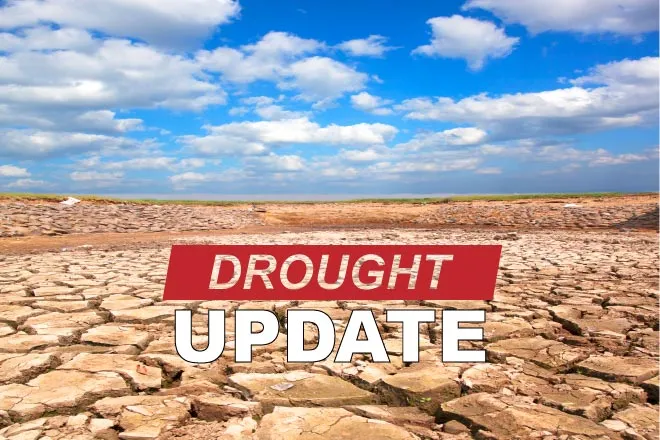
Opinion: What are climate-smart crops and why should growers get government support?
(Colorado Newsline) As I look forward to finding peaches and other summertime fruits and veggies at my local farmers market, I’m also aware of the challenges that farmers face. This topic was recently explored by senators in Washington according to Colorado Newsline.
Right here in Colorado, our commissioner of agriculture, Kate Greenberg, understands that the farmers who grow our food are on the front lines “experiencing first-hand the impacts of drought and climate change.” Greenberg recently emphasized the importance of providing financial and technical assistance to Colorado farmers interested in expanding or introducing new climate-smart practices.
Farmers increasing acreage of climate-smart crops should immediately get any government funding they apply for. Expanding orchards is especially climate smart, because fruit and nut trees, like all trees, help to mitigate climate change by pulling carbon dioxide out of the air. Trees also provide oxygen for us to breathe. Once established, trees send down deep roots and use water efficiently.
In Colorado, there’s about 6,178 acres in orchards, and farmers grow peaches, apples, apricots, walnuts, cherries, hazelnuts, pears and plums, according to the U.S. Department of Agriculture. At this time of year, I’m dreaming of Colorado’s famous Palisade peaches.
As a doctor focused on preventive medicine, I know that climate-smart crops can also benefit your health. A recently published meta-analysis finds that a plant-based diet focused on beans, greens, fruits and veggies, can lower “bad” cholesterol, reducing your risk of heart disease. Peaches and other fruits taste sweet, but daily fruit consumption decreases risk for Type 2 diabetes, according to a study published in The Journal of Clinical Endocrinology and Metabolism.
Commercially valuable fruit and nut trees can store carbon dioxide in their fibers and produce oxygen. By contrast, industrial livestock facilities contribute to climate change.
Beans are grown extensively in Colorado, and according to Modern Farmer pulse crops like beans are powerhouses of conservation farming, because they require very little water, and they improve soil structure and water retention.
Federal funds are now available for climate-smart farming practices through the Inflation Reduction Act. The IRA provides $19 billion “to support farmers and ranchers in adopting and expanding climate-smart activities and systems,” according to the U.S. Department of Agriculture. Some of these funds should be used to assist farmers who would like to phase out livestock and instead grow climate-smart crops, including hazelnuts and beans.
Many farmers are already making this change, including Mike Lanigan, a third-generation cattle rancher who converted his meat-and-produce business to a vegetables-only farm. Carl Taber of Trumansburg, N.Y., phased out his dairy operation and now grows chickpeas in response to rising demand. In Texas, former cattle ranchers Richard and Cindy Traylor mention concerns about methane from livestock when discussing a switch to growing fava beans and other sources of plant protein.
Why is it important for the government to assist farmers who would like to phase out large-scale livestock operations? Commercially valuable fruit and nut trees can store carbon dioxide in their fibers and produce oxygen. By contrast, industrial livestock facilities contribute to climate change because they generate methane, a powerful planet-warming gas, according to the Centers for Disease Control and Prevention.
The World Health Organization says, “Reducing livestock herds would reduce emissions of methane, which is the second largest contributor to global warming after carbon dioxide.” Methane is an efficient heat-trapping gas, but it’s relatively short-lived, so reducing emissions now could help slow global warming.
Colorado is often rated among the healthiest states, and as a doctor, I know that a plant-based diet can help keep you active and healthy as you engage in summertime outdoor activities. He’s not a Coloradan, but a recent example of the power of a plant-based diet is Dr. Marty Wasserman, who, at 81, swam across the Chesapeake Bay on June 11.
Your summer picnics can feature protein-packed black bean burgers, grilled portobello mushrooms, and watermelons grown in Colorado. Blackberry cobbler and Palisade peaches for dessert would be a delicious addition.
Colorado Newsline is part of States Newsroom, a network of news bureaus supported by grants and a coalition of donors as a 501c(3) public charity. Colorado Newsline maintains editorial independence. Contact Editor Quentin Young for questions: info@coloradonewsline.com. Follow Colorado Newsline on Facebook and Twitter.

















